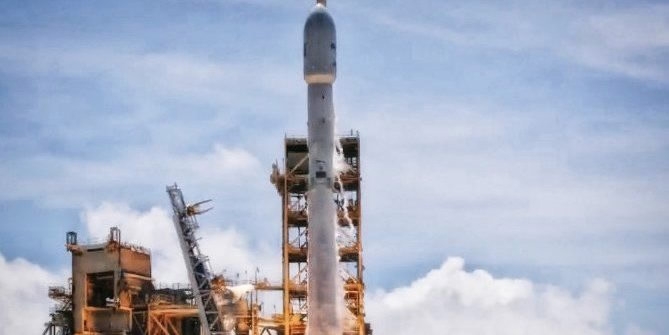SpaceX's Falcon 9 rocket blasted off from the Vandenberg Air Force Base in California on Sunday carrying 10 communications satellites to low-Earth orbit, the company said on its website.
The launch is for a company called Iridium, a provider of voice and data communications which replaces its entire constellation with next-generation satellites.
After launching as scheduled at 1:25 p.m. local time (2025 GMT), the Falcon 9's first stage returned less than eight minutes after taking off.
The launch used a orbital-class booster which was recycled and landed safely on a "droneship" in the Pacific Ocean.
On Friday, a Falcon 9 launched from Cape Canaveral, Florida. It was carrying a communications satellite for Bulgaria into orbit.

The SpaceX's Falcon 9 rocket was launched with 10 satellites on Sunday in California. /AP Photo
That launch re-used a Falcon 9 first stage used in January and recovered after being launched from Vandenberg with the first batch of Iridium next-generation satellites, after a set of 10 were delivered.
SpaceX has successfully landed multiple rockets on both land and water, as part of its effort to bring down the cost of spaceflight by re-using multi-million dollar components instead of jettisoning them in the ocean after launch.
It took SpaceX 15 years to demonstrate that a rocket typically discarded in the ocean after a single flight could be recovered and reused.
With the completion of a second rocket reuse, SpaceX successfully demonstrated to its customers its capability of a significant reduction in space launch cost, which typically costs a client 62 million US dollars.
Iridium plans to launch a total of 75 new satellites for its mobile voice and data communications system by mid-2018.
(With inputs from AP, Reuters and AFP)
Related stories:
SpaceX launches reusable rocket after one-day delay
SpaceX conducts historic launch, landing with 'used' rocket
US Air Force space chief open to flying on recycled SpaceX rockets










